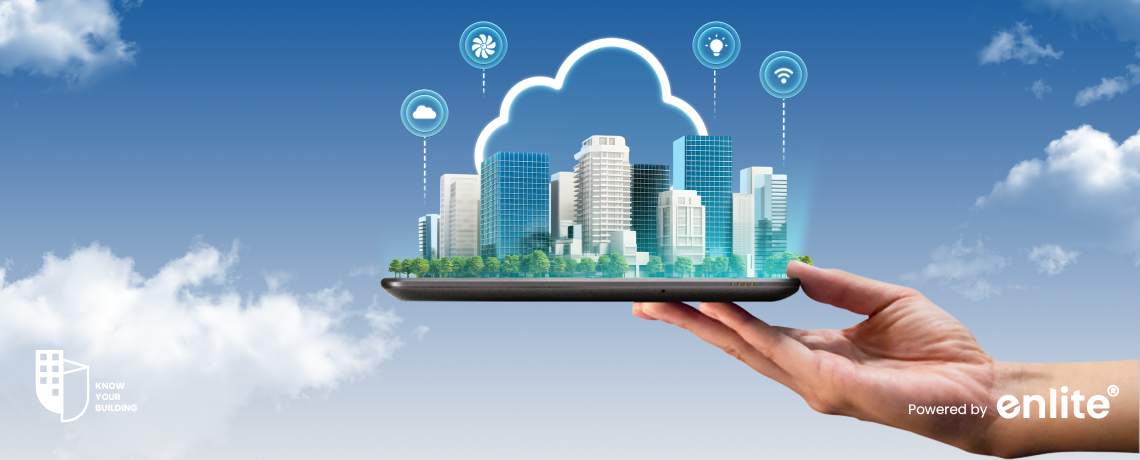Data Insights:
- Buildings contribute to 40% of global energy consumption (IEA), making efficient management crucial.
- Smart building market expected to reach $79.16 billion by 2028, growing at a 19.9% CAGR.
- 30% reduction in energy costs is achievable through smart building technologies like the Building Health Monitor.
Introduction: What is a Building Health Monitor?
A Building Health Monitor is a comprehensive solution designed to monitor and optimize a building’s performance by assessing key environmental and operational factors. With Know Your Building (KYB), the world’s first cloud-native wireless Building Management System (BMS), this monitor plays a crucial role in tracking the health of a building—focusing on energy consumption, air quality, water use, temperature control, and overall system performance.
In today’s world, as the demand for smarter, sustainable, and more energy-efficient buildings increases, building health monitoring has become vital to ensure optimal performance, minimize waste, and improve the indoor environment.
Key Features of the Building Health Monitor with KYB:
- Real-Time Energy Consumption Monitoring:
- Tracks energy usage across various building systems (HVAC, lighting, etc.).
- Provides insights into energy inefficiencies, helping to optimize consumption and reduce costs.
- Promotes sustainability by identifying energy-saving opportunities and supporting green certifications.
- Air Quality Monitoring:
- Measures indoor air quality (IAQ) through sensors that monitor pollutants, humidity, and CO2 levels.
- Ensures better health for occupants by maintaining optimal air quality.
- Alerts building managers about any deviations from healthy air quality standards, allowing for quick corrective actions.
- Water Usage & Leakage Detection:
- Monitors water consumption and detects potential leakages in real-time, preventing water wastage and reducing utility costs.
- Early leakage detection helps in preventing damage to building infrastructure.
- Helps in promoting water conservation and sustainability efforts.
- Temperature and Humidity Control:
- Optimizes HVAC systems by controlling temperature and humidity levels based on occupancy and external weather conditions.
- Reduces energy waste by adjusting systems dynamically to maintain comfort without overconsumption.
- Predictive Maintenance and Equipment Health:
- The Building Health Monitor analyzes system data to predict potential equipment failures.
- Prevents unplanned downtime and reduces maintenance costs by addressing issues before they cause major breakdowns.
- Occupancy and Space Utilization:
- Tracks occupancy patterns to optimize space usage and ensure the building operates efficiently.
- Provides insights into how spaces are being used, helping managers make informed decisions about space allocation and energy management.
- Seamless Integration with IoT Devices:
- The Building Health Monitor integrates easily with existing IoT devices, creating a connected ecosystem for building management.
- Allows for real-time, centralized monitoring of all systems and performance metrics from a single platform.
- Cloud-Native Flexibility:
- Being cloud-native, KYB’s system allows remote monitoring and control, meaning building managers can manage multiple locations from anywhere.
- No on-site infrastructure needed, reducing both upfront costs and long-term maintenance.
How the Building Health Monitor Supports Sustainability:
- Energy Efficiency:
- Identifies inefficient systems, helping buildings reduce overall energy consumption.
- Contributes to lowering the building’s carbon footprint and supporting sustainability initiatives.
- Water Conservation:
- With real-time water monitoring and leakage detection, the system helps minimize water waste, which is critical for sustainability efforts.
- Indoor Environmental Quality:
- Ensures a healthy and comfortable environment for building occupants, promoting well-being while improving productivity and satisfaction.
- Cost Reduction:
- Optimizing energy use, reducing water wastage, and ensuring equipment health all contribute to lowering operational costs.
The Benefits of Using KYB’s Building Health Monitor:
- Improved Building Efficiency:
- Real-time data helps identify inefficiencies, optimize energy use, and reduce costs.
- Predictive maintenance ensures that building systems are running optimally, reducing the chances of unexpected breakdowns.
- Enhanced Tenant Comfort and Well-being:
- Continuous monitoring of indoor air quality, temperature, and humidity creates a healthier environment for building occupants.
- Ensures comfort, resulting in higher tenant satisfaction and retention.
- Sustainability:
- Contributes significantly to meeting sustainability goals by reducing energy consumption, water wastage, and carbon emissions.
- Helps buildings qualify for green building certifications and eco-friendly recognition.
- Cost Savings:
- With energy and water consumption data, building owners can make data-driven decisions to cut unnecessary costs.
- Preventative maintenance minimizes repair costs and extends the lifespan of building systems.
- Seamless Remote Management:
- The cloud-native platform enables building managers to monitor and manage buildings from anywhere, providing flexibility and real-time oversight.
Future of Building Management with the Building Health Monitor
The Building Health Monitor powered by Know Your Building (KYB) is a revolutionary tool in smart building management. By integrating real-time monitoring, predictive analytics, and cloud-native flexibility, this system offers building owners and managers a comprehensive way to enhance the health and performance of their buildings.
As the world moves towards smarter, greener, and more efficient buildings, leveraging a Building Health Monitor is no longer optional—it’s essential. With KYB leading the way as the world’s first cloud-native wireless BMS, this system not only improves building performance but also supports sustainability and occupant well-being.
In a rapidly evolving world where building management is crucial to business success, adopting the right technologies like KYB’s Building Health Monitor can help organizations stay ahead of the curve, ensuring their buildings are healthier, more efficient, and more sustainable for the future.














